A year of strength and resilience
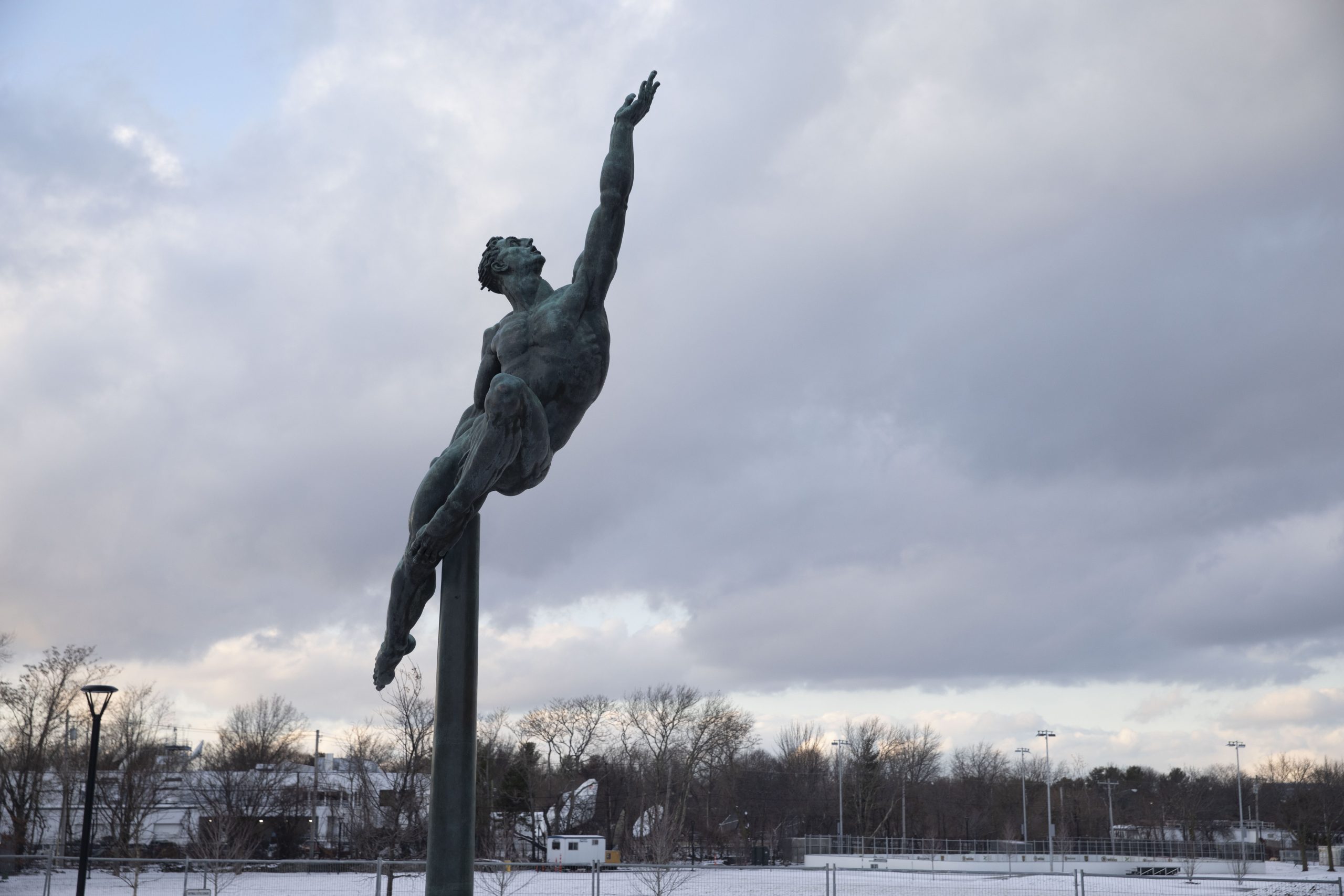
Kris Snibbe/Harvard Staff Photographer
Notable moments from Harvard’s 2020-21 academic year
While Harvard remained primarily virtual during the 2020-21 academic year, students, alumni, faculty, staff, and community members alike stayed connected through it all. New diversity and inclusion initiatives were created to support the University’s strategic plans, efforts in COVID-19 research, assistance, and relief continued to flourish, and advocates from across the political spectrum engaged in an election — and inauguration — like no other.
Through it all, the Harvard community’s resilience and strength prevailed. As the world emerges from the grip of the pandemic and life returns to normal, there is so much to reflect on and to celebrate as we look back.
June 2020
Nancy Coleman was named the next dean of Harvard’s Division of Continuing Education, succeeding Huntington D. Lambert, who retired in December 2019.
The School of Dental Medicine was awarded a $3 million grant to address gaps in dental education and access to care in underserved and vulnerable populations in rural areas.
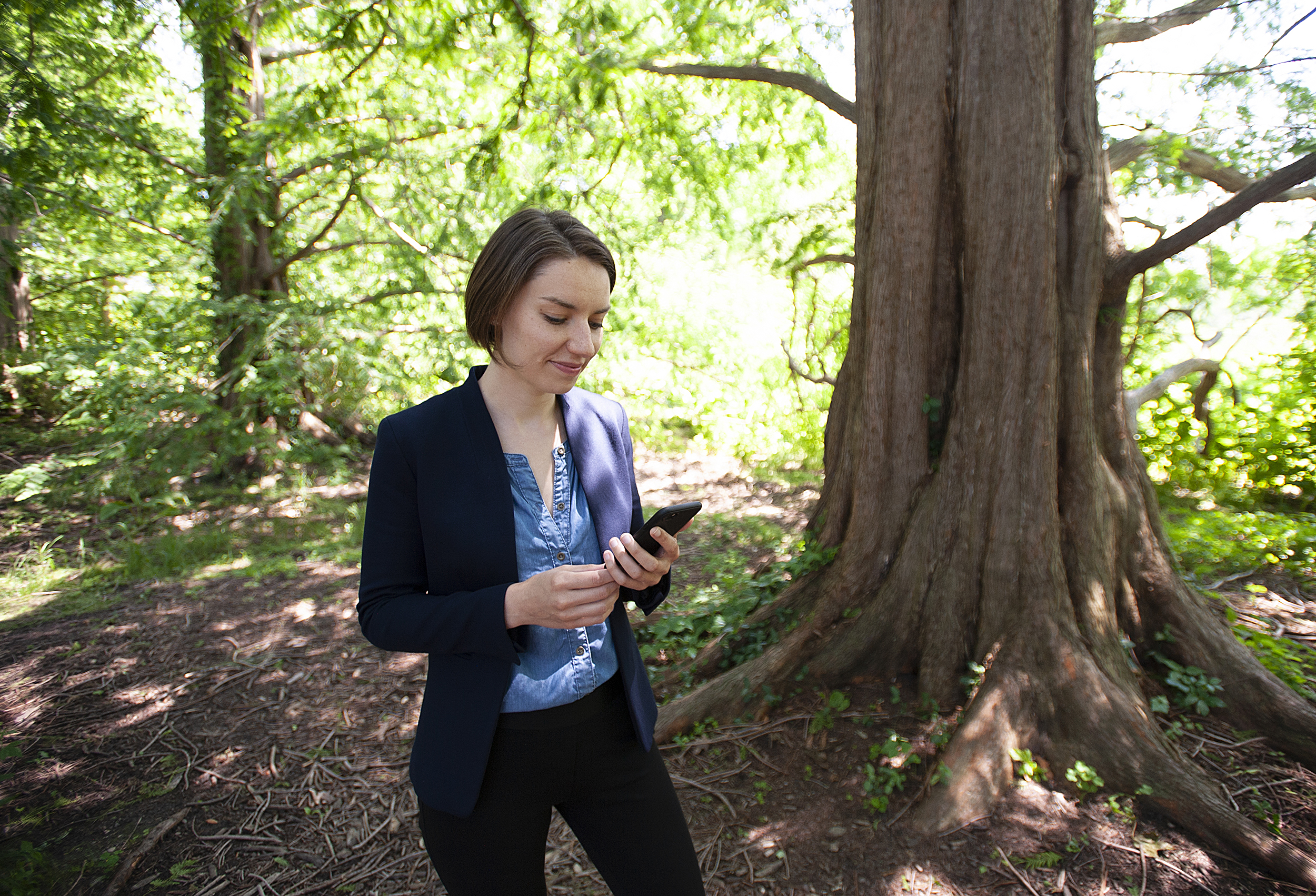
“Expeditions users may experience the feeling of being on a journey,” said Amy Heuer, the Arboretum’s visitor engagement fellow and the creator of the Expeditions Mobile App.
Jeffrey Blackwell/Harvard University
The Arnold Arboretum’s new Expeditions mobile app gave visitors an interactive experience with audio, text, and imagery — all in the palms of their hands.
Sherri Ann Charleston, a diversity expert as well as a lawyer and historian trained in race and constitutional issues, was named Harvard’s chief diversity and inclusion officer.
July 2020
Medical School faculty became central in the creation and operation of Boston’s postacute COVID-19 hospital.
Penny Xu in the Imaging Services department, working on digitizing rare books from the Harvard-Yenching Library.
Photo courtesy of Bill Comstock

A group of library staff members returned to Harvard’s campus as physical collection access resumed.
Researchers at the Graduate School of Education found that the vast majority of parents favor racially and economically integrated schools, but many make choices for their children that exacerbate segregation.
Melissa Wood Bartholomew, MDiv ’15, joined the Divinity School as its new Associate Dean of Diversity, Inclusion, and Belonging. She launched anti-racist and anti-oppressive initiatives including a program aimed at reorienting the community around its shared values and commitments.
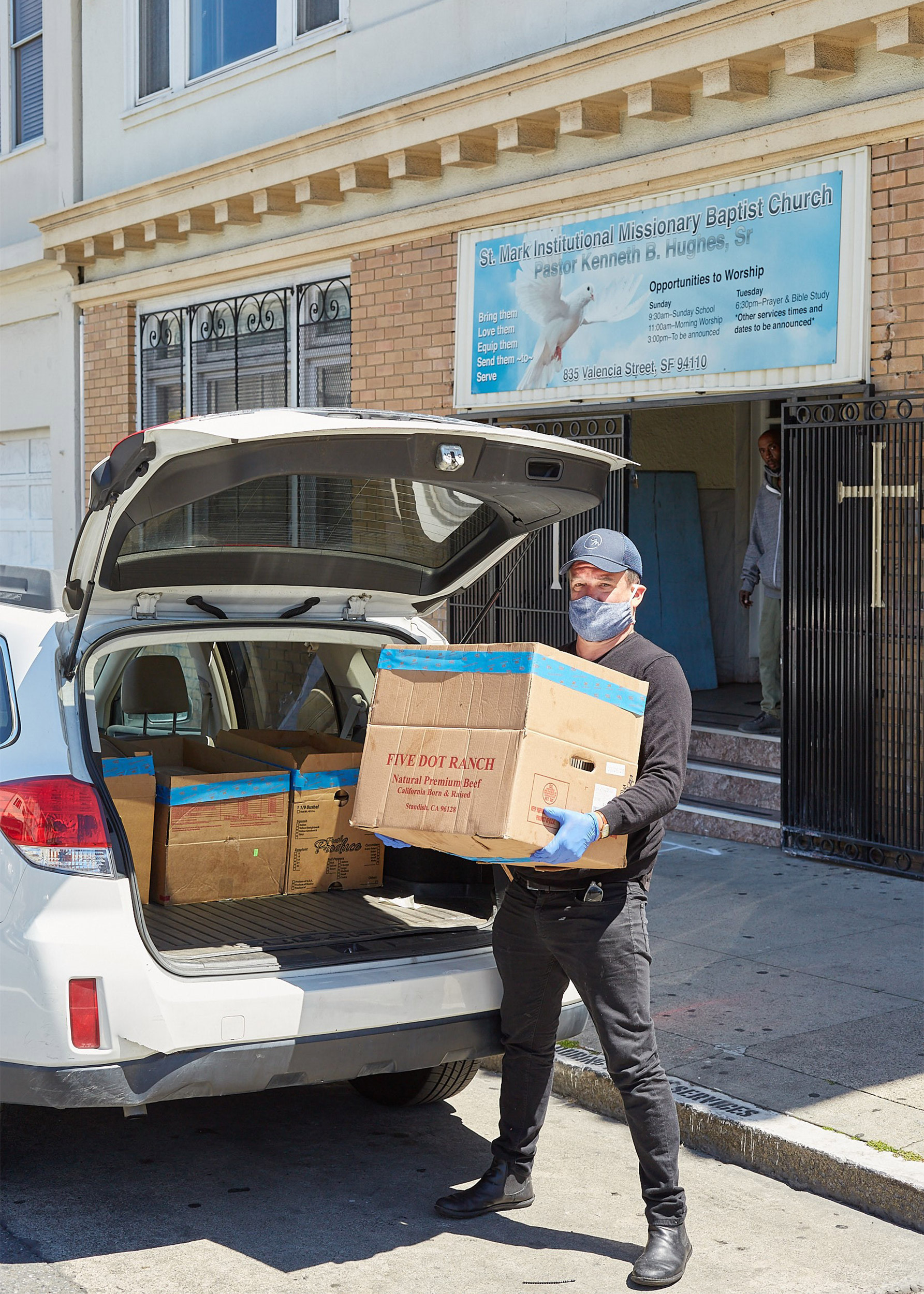
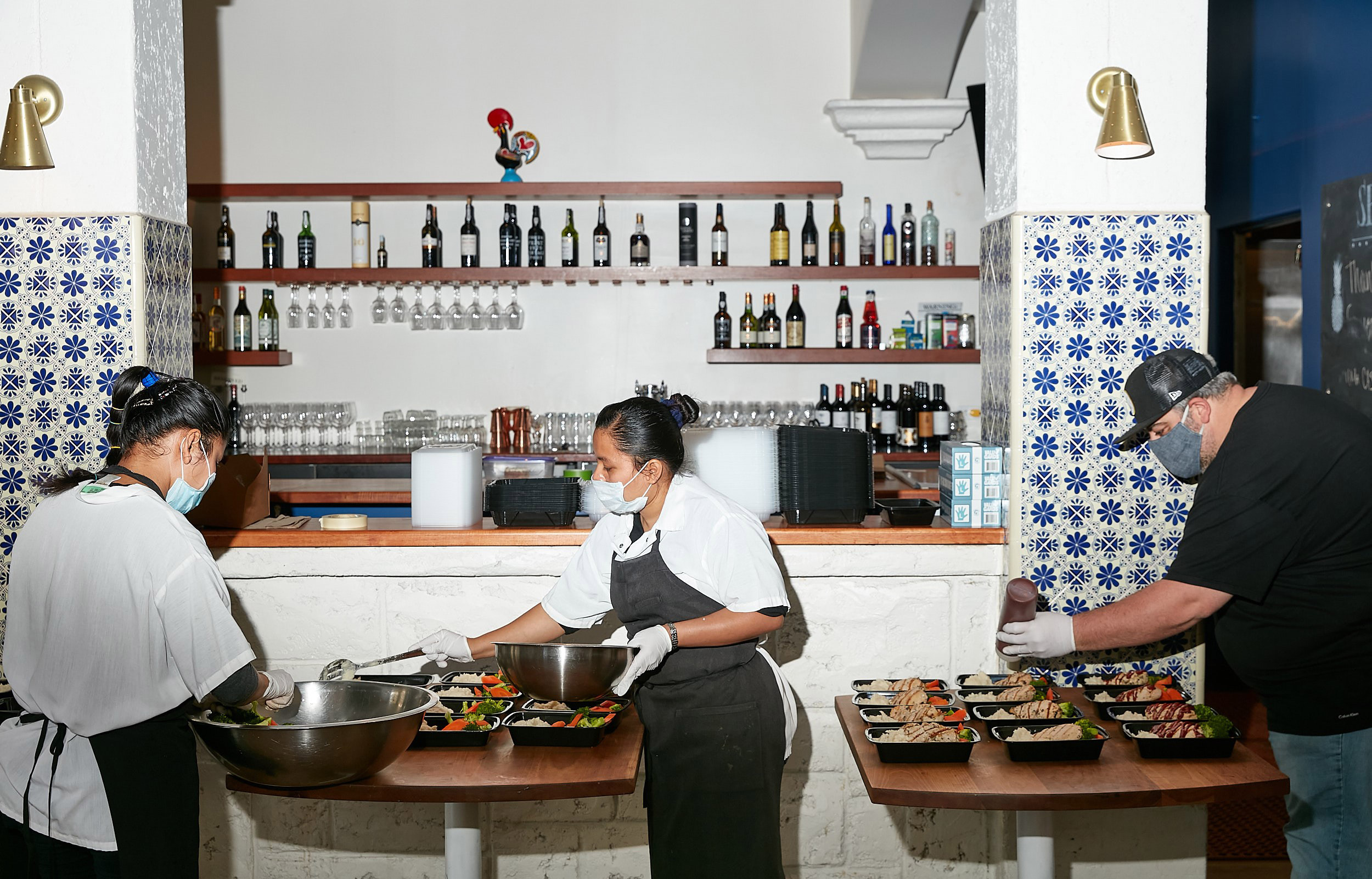
Restaurants and community organizations partner to deliver 48,000 meals per week in San Francisco through SF New Deal, an organization co-created by Jacob Bindman ’19.
Photos by Molly DeCoudreaux
Harvard alumni across the country tackled issues worsened by the COVID-19 crisis, including domestic violence, clinical trial recruitment, and food insecurity.
Brigham and Women’s Hospital played a major role in the 30,000-participant phase 3 trial of a candidate vaccine for preventing COVID-19.
August 2020
Multiple groups at the Wyss Institute used 3D printers and laser cutters to prototype and produce face shields that led to a regional, scalable PPE production of up to 400,000 products per day.
A new species of bacteria, one that makes its home on the relatively hot and dry surface of a solar panel, was discovered at the Arnold Arboretum.
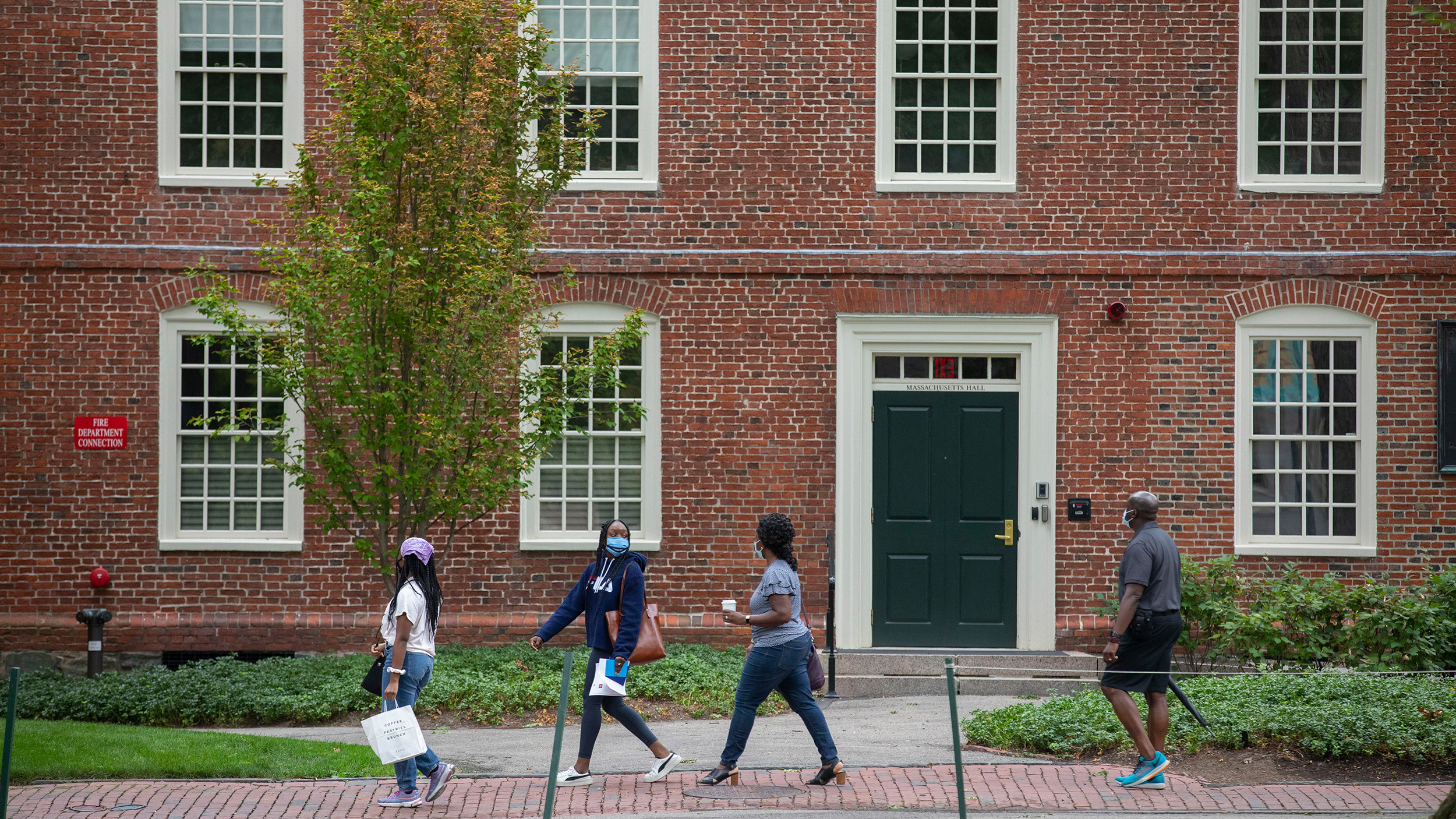
Lara Dada ’24 (second from left) walks with her family past Massachusetts Hall.
Photos by Kris Snibbe/Harvard Staff Photographer
The incoming class of first-year students arrived on campus with hope, a touch of anxiety, and a whole lot of excitement.
Edgerley Family Dean of the Faculty of Arts and Sciences Claudine Gay announced a robust anti-racism agenda that prioritized six areas of action.
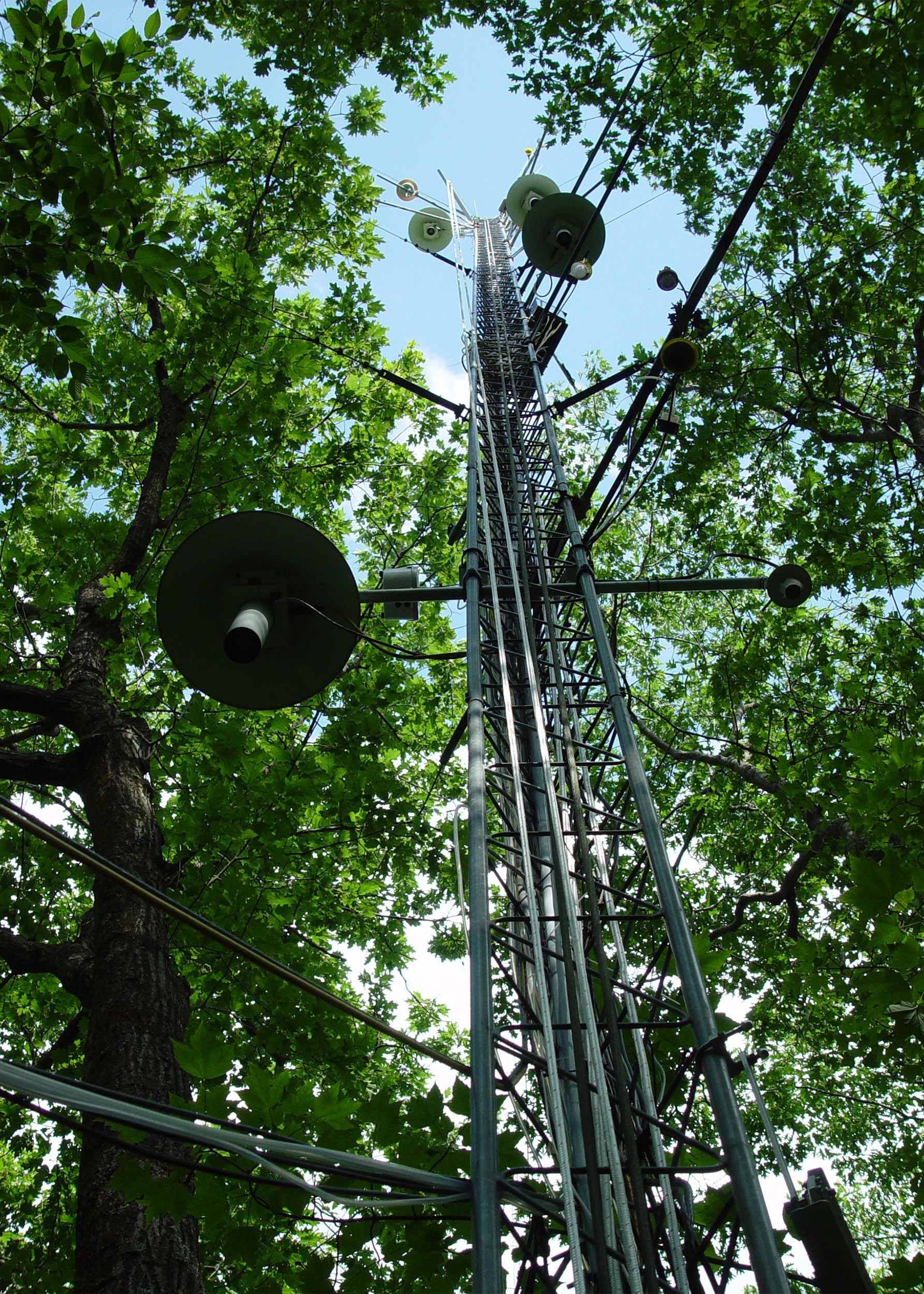

Postdoctoral fellow Tim Rademacher and student researcher Kyle Wyche measure the respiration of an oak tree at Harvard Forest.
Photos by David Foster and Sara Plisinski
A 25-year study revealed that the rate at which carbon was captured from the atmosphere at Harvard Forest nearly doubled between 1992 and 2015.
September 2020
The Business School Dean Nitin Nohria announced the Action Plan for Racial Equity, a comprehensive plan to advance racial equity both within and beyond the School.
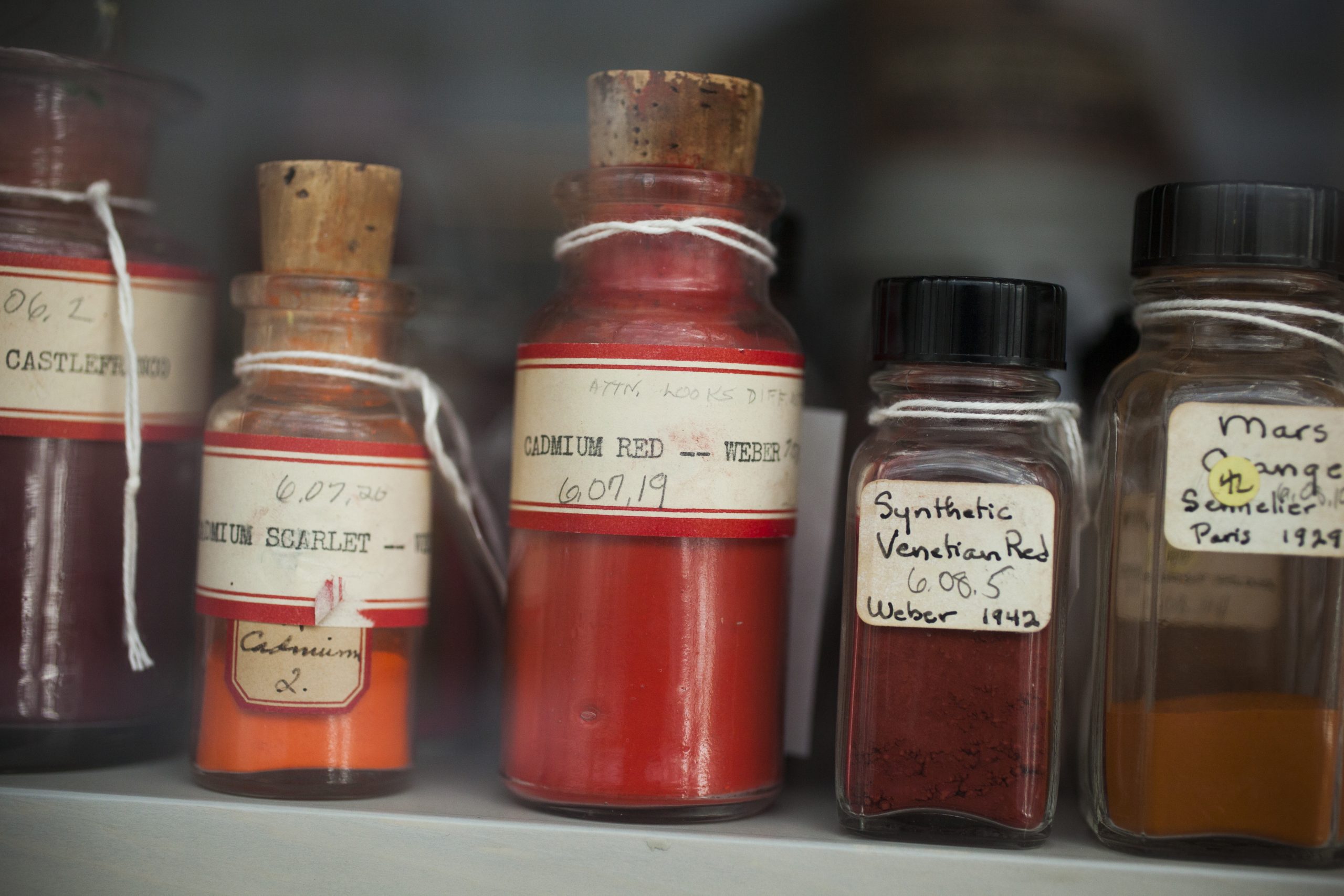
Stephanie Mitchell/Harvard Staff Photographer
The Harvard Art Museums launched an audio tour of the Forbes Pigment Collection, the world’s largest collection of historical pigments.
“How and where we memorialize individuals, events, and moments in our institutional history through imagery and symbols should reflect our core institutional commitments to truth, knowledge, and critical thinking,” Claudine Gay, the Edgerley Family Dean of the Faculty of Arts and Sciences, said about a task force comprised of faculty, students, and staff to create more inclusive imagery across the campus.
A gift from South Africa’s Motsepe Foundation, will help launch the Motsepe Presidential Research Accelerator Fund for Africa to advance groundbreaking research on key issues impacting the continent.
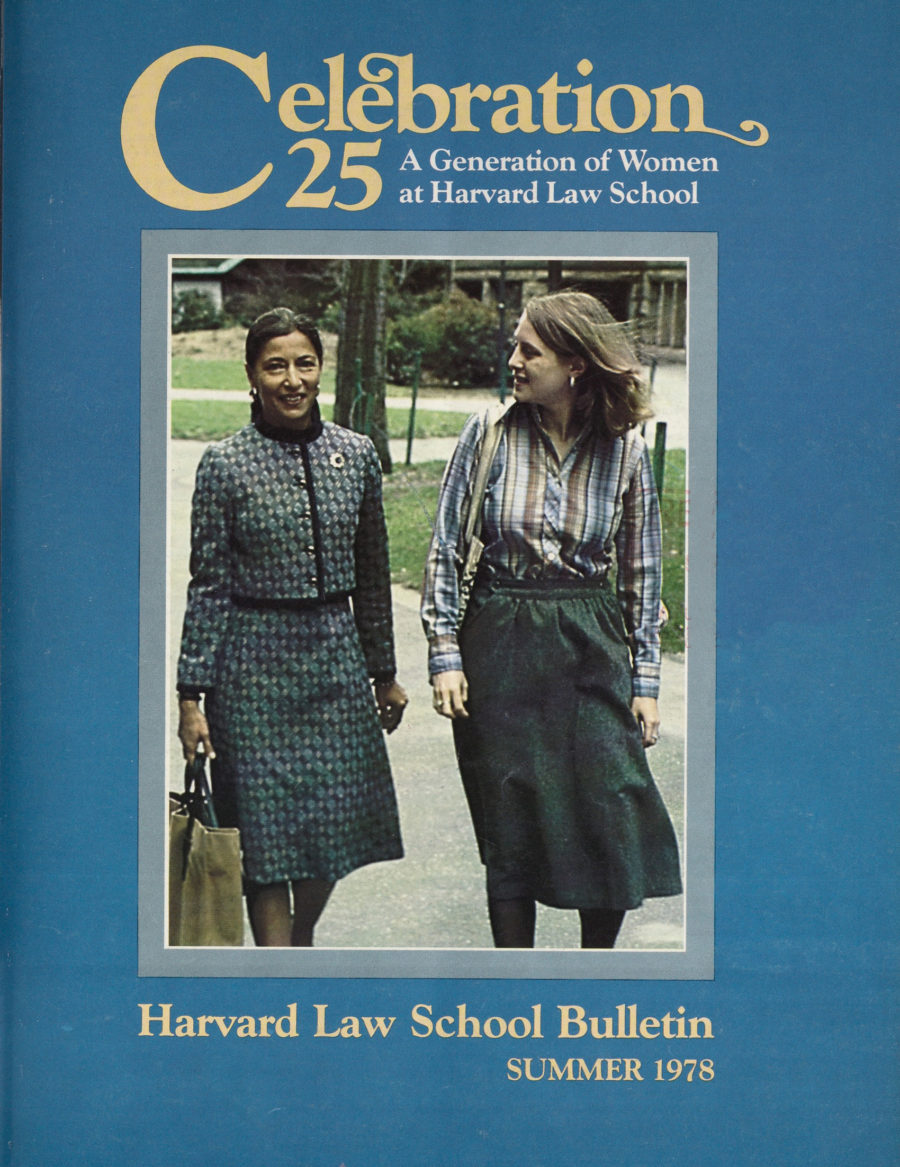
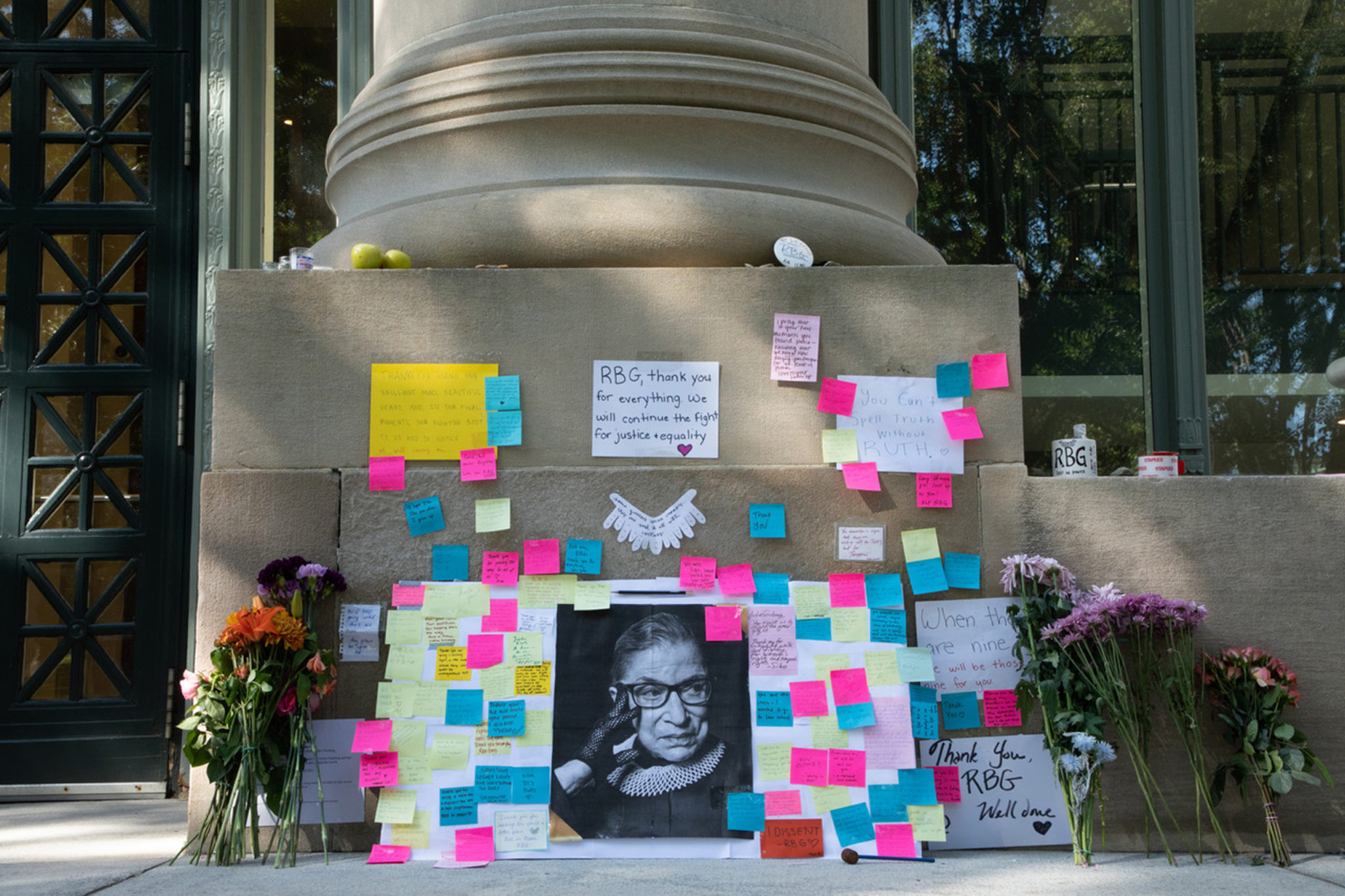
Ruth Bader Ginsburg returned to campus in 1978 to commemorate the 25th anniversary of Harvard Law’s first graduating class to include women. Her daughter, Jane C. Ginsburg ’80, was then a first-year law student.
Photos by Bradford Herzog and Martha Stewart
Harvard Law School professors and students reflected on the late Supreme Court Justice Ruth Bader Ginsburg’s influence on the institute and remembered her as a teacher, boss, colleague, inspiration, and friend.
October 2020
The Medical School’s Therapeutics Initiative launched the Ideation Hub, a sweeping school-wide endeavor to advance fundamental scientific discovery, help translate discoveries into medicines, and craft new educational paradigms for therapeutics education.
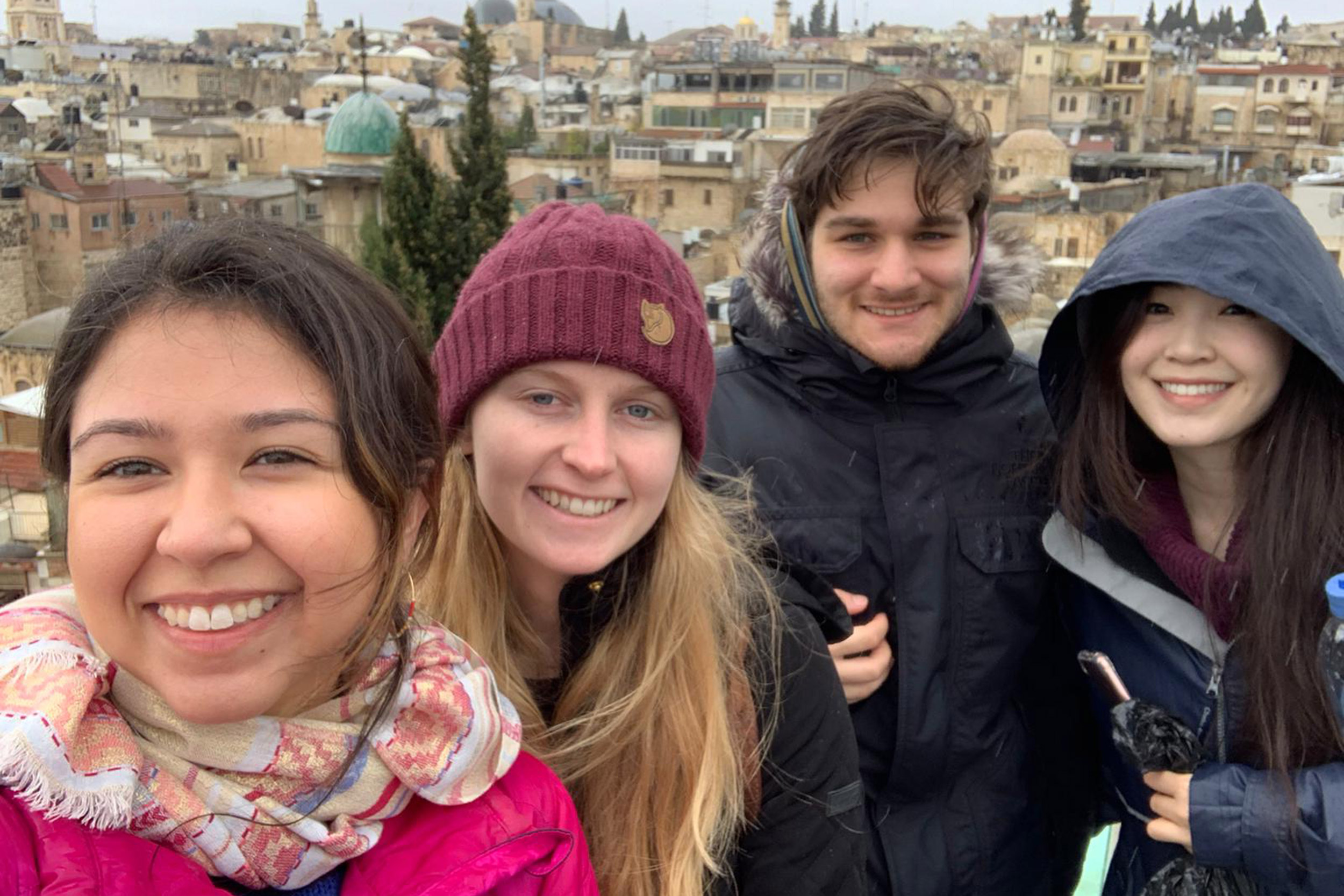
Yaseen Hashmi, M.T.S. ’21, (third from left) joined fellow students from across the University in a J-term course in Israel and Palestine. “Something clicked for me on that trip,” he said.
Photo by Elizabeth Ho
The Divinity School launched its first new degree program in 50 years, Religion and Public Life, with the core mission to advance the public understanding of religion in service of a just world at peace.
With K–12 school resources spread thin and an overwhelming amount of work to be done to face the unprecedented challenges of the pandemic, the School of Education responded with direct help from its newest graduates, in a fully funded fellowship program called the Dean’s Education Fellows program, which sent over two dozen grads out to school districts nationwide to lend a hand.
As part of the presidential initiative on Harvard and the Legacy of Slavery, anchored at Harvard Radcliffe Institute, Professors Anthony Abraham Jack and William Julius Wilson launched an ambitious new research project that will document inequality among Harvard undergraduates and inform recommendations for action, with a specific focus on COVID-19, race, and racism.

Amidst a national reckoning with racial injustice, alumni took action to help combat systemic racism, spurring progress in their communities through efforts ranging from music to mentorship to medicine.
President Larry Bacow announced that Srikant Datar, the Arthur Lowes Dickinson Professor of Business Administration and senior associate dean for University affairs at Harvard Business School, will become the School’s next dean.
November 2020
With more than 15 percent of Harvard College students being the first in their families to pursue a college degree, the University established the Next Gen Initiative to help first-generation, lower-income students overcome institutional barriers, address shared challenges, and find ways to integrate opportunities.
Harvard Radcliffe Institute hosted the virtual program “Antiracism in Higher Education: A Conversation with Ibram X. Kendi.” The discussion with the 2020–21 Frances B. Cashin Fellow at Radcliffe and antiracist scholar featured current Harvard College students and drew nearly 2,500 viewers.
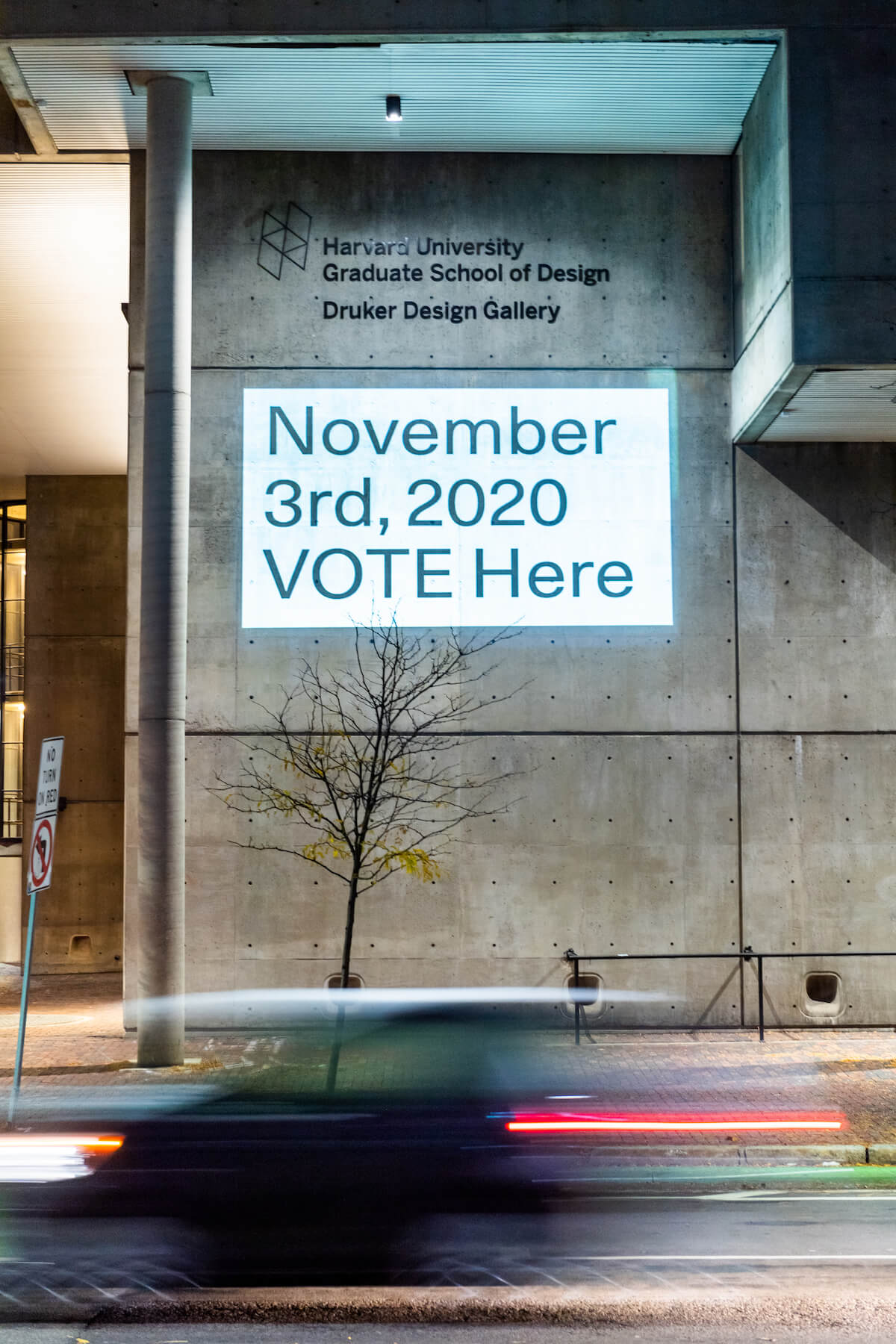
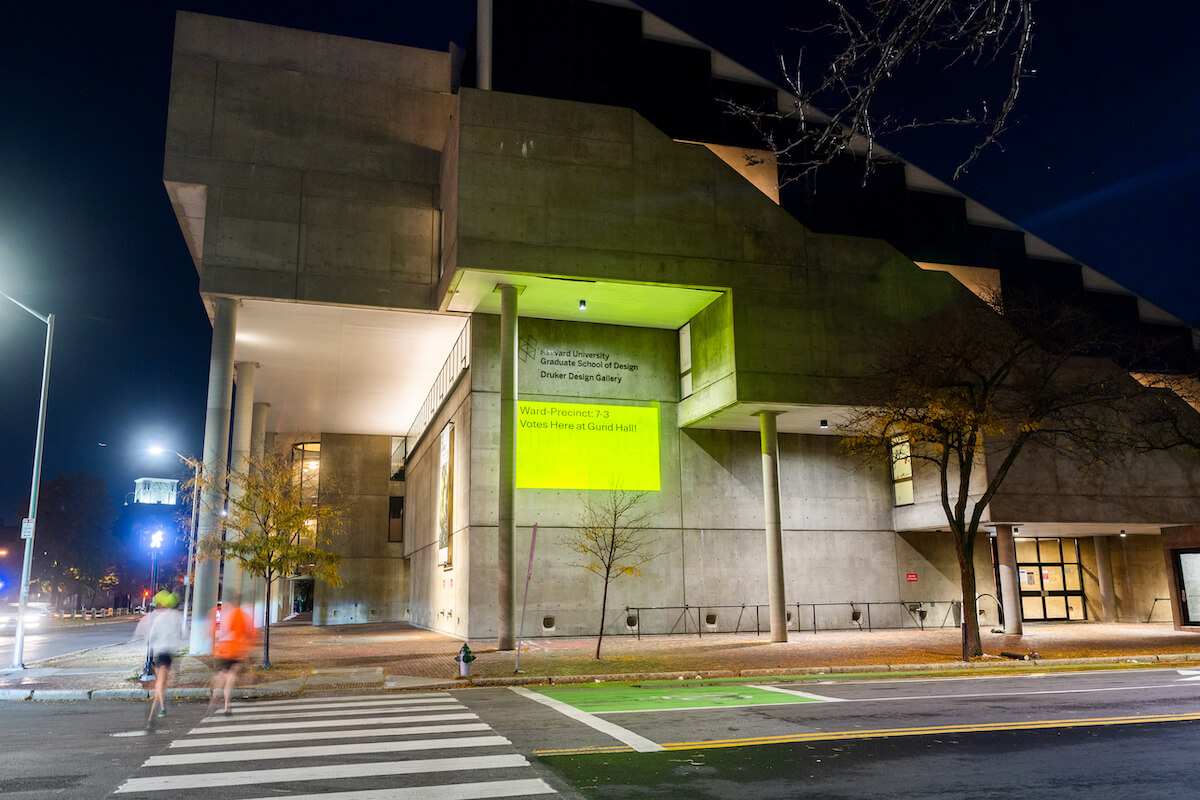
Projection designed by Chad Kloepfer
With Gund Hall as the only Harvard building that doubles as a polling location, the School of Design installed an Election Day projection that both encouraged voter participation and served as wayfinding for voters.
December 2020
Harvard Alumni Association created a new virtual series, “Climate Conversations,” which drew viewers from across the globe to learn from alumni, faculty, and students seeking paths to collaboration and solutions in addressing the climate crisis.
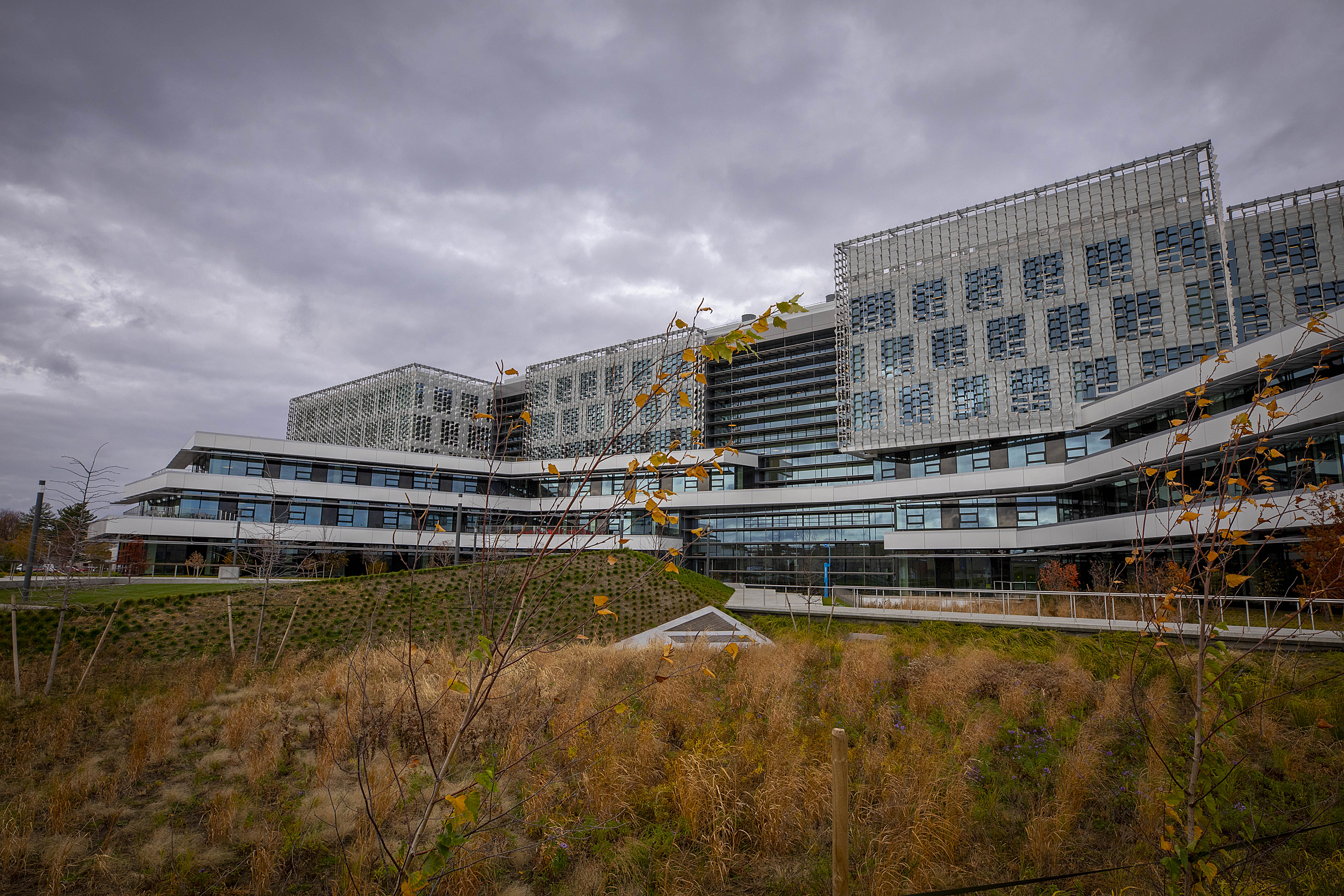
Rose Lincoln/Harvard Staff Photographer
After a pause due to the pandemic, the new Science and Engineering Complex resumed its shift to Allston.
The Lakshmi Mittal and Family South Asia Institute received a gift from Vijay Shekhar Sharma in support of the Institute’s research, partnerships, and engagement with South Asian partners.
Harvard Law students fought for families facing evictions due to the expiration of the pandemic eviction moratorium through the Harvard Legal Aid Bureau and other means.
President Biden named Rochelle Walensky, chief of Massachusetts General Hospital’s Division of Infectious Diseases and professor of medicine at Harvard Medical School, as the new administration’s director of the Centers for Disease Control and Prevention (CDC).
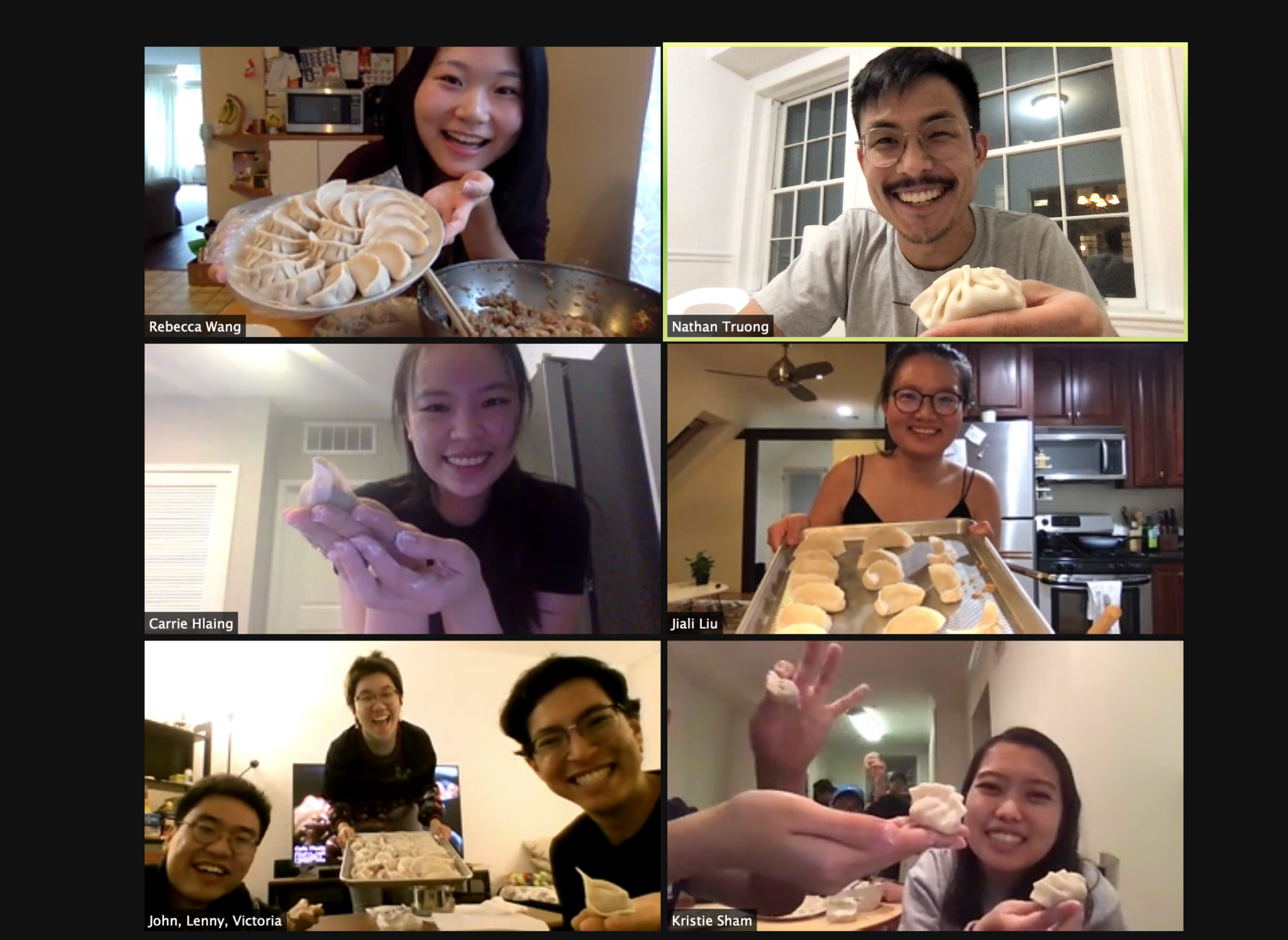
The Asian Pacific American Law Students Association (APALSA) worked to create community during remote learning and teaching and to advocate for the AAPI community at HLS and beyond.
January 2021
Two faculty members from Harvard T.H. Chan School of Public Health — Sara Bleich and Benjamin Sommers — and one former faculty member, Gina McCarthy, were selected for roles in the new Biden-Harris administration.
Amanda Gorman ’20 won wide-ranging praise and rocketed to even greater fame after presenting her soaring original poem for the inauguration of President Biden. In “The Hill We Climb,” the youngest-ever inaugural poet declared: “History has its eyes on us.”
Law School scholars weighed in on the Capitol riot and the transfer of presidential power.
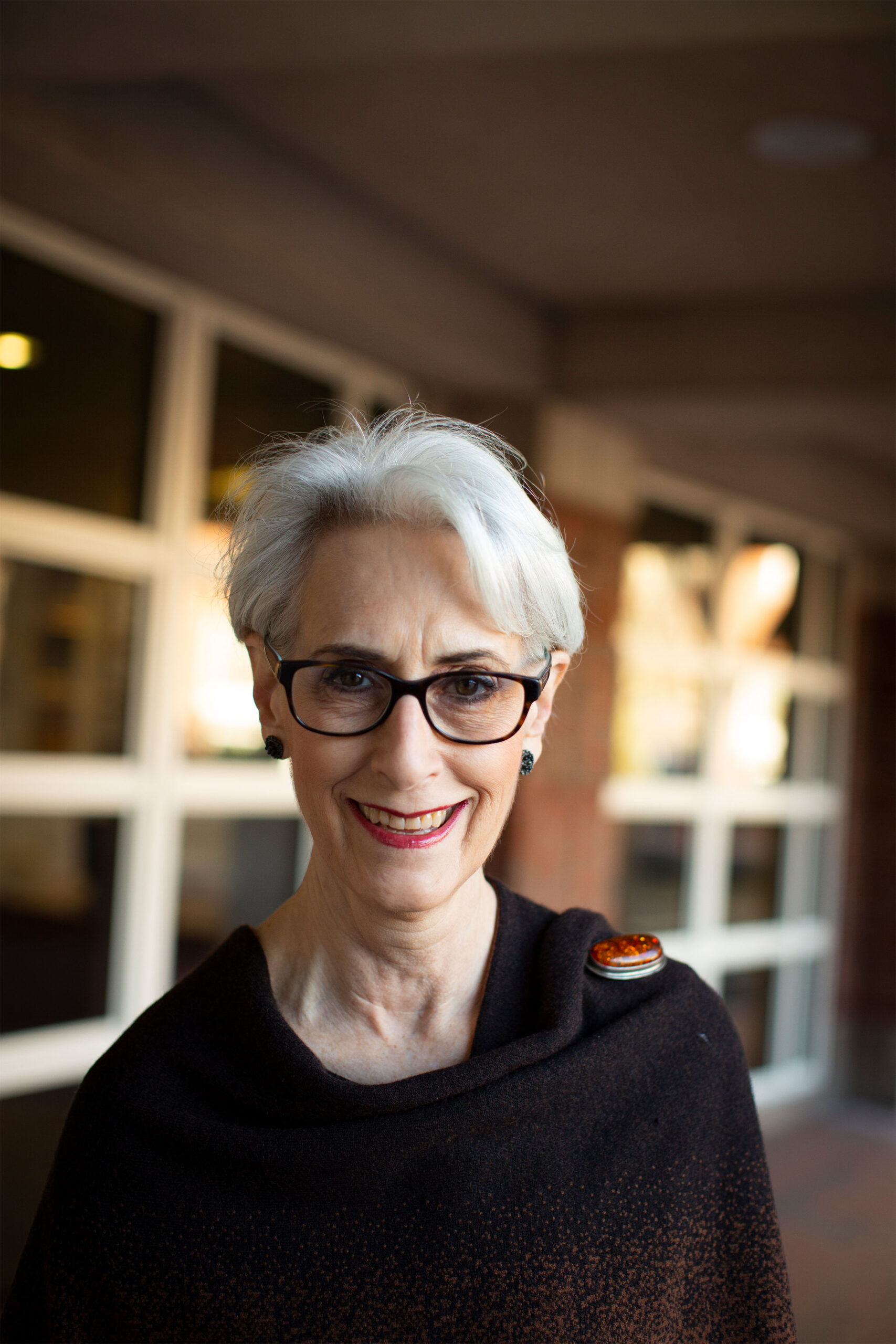
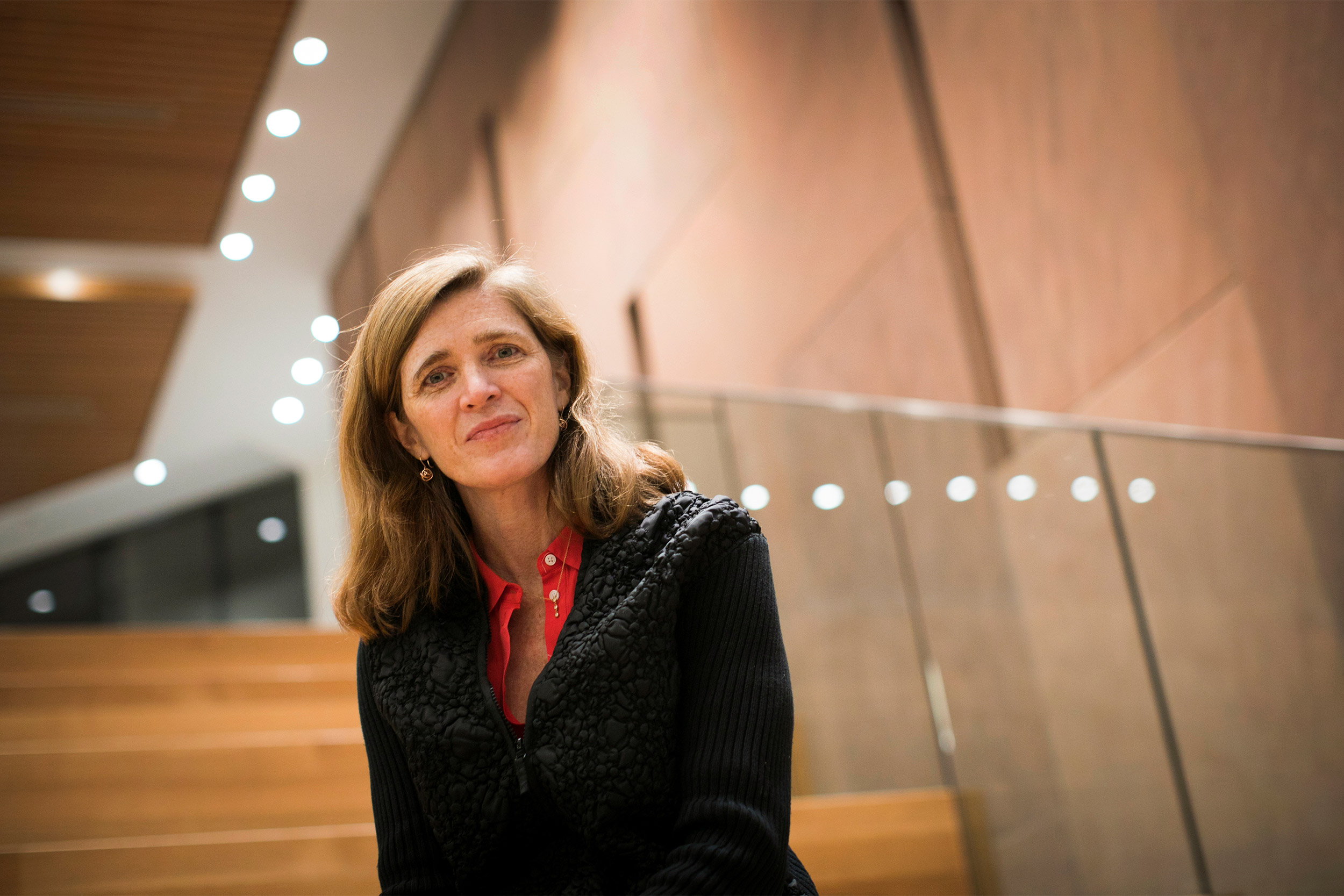
Stephanie Mitchell/Harvard Staff Photographer
President Joe Biden chose Wendy R. Sherman, professor of the practice of public leadership at Harvard Kennedy School and director of the School’s Center for Public Leadership, and Samantha Power, the Anna Lindh Professor of the Practice of Global Leadership and Public Policy at the Kennedy School and the William D. Zabel ’61 Professor of the Practice in Human Rights at Harvard Law School, to fill senior government positions.
A team of researchers at the School of Engineering and Applied Sciences (SEAS) and the Wyss Institute for Biologically Inspired Engineering have developed fish-inspired robots that can synchronize their movements like a real school of fish, without any external control.
February 2021
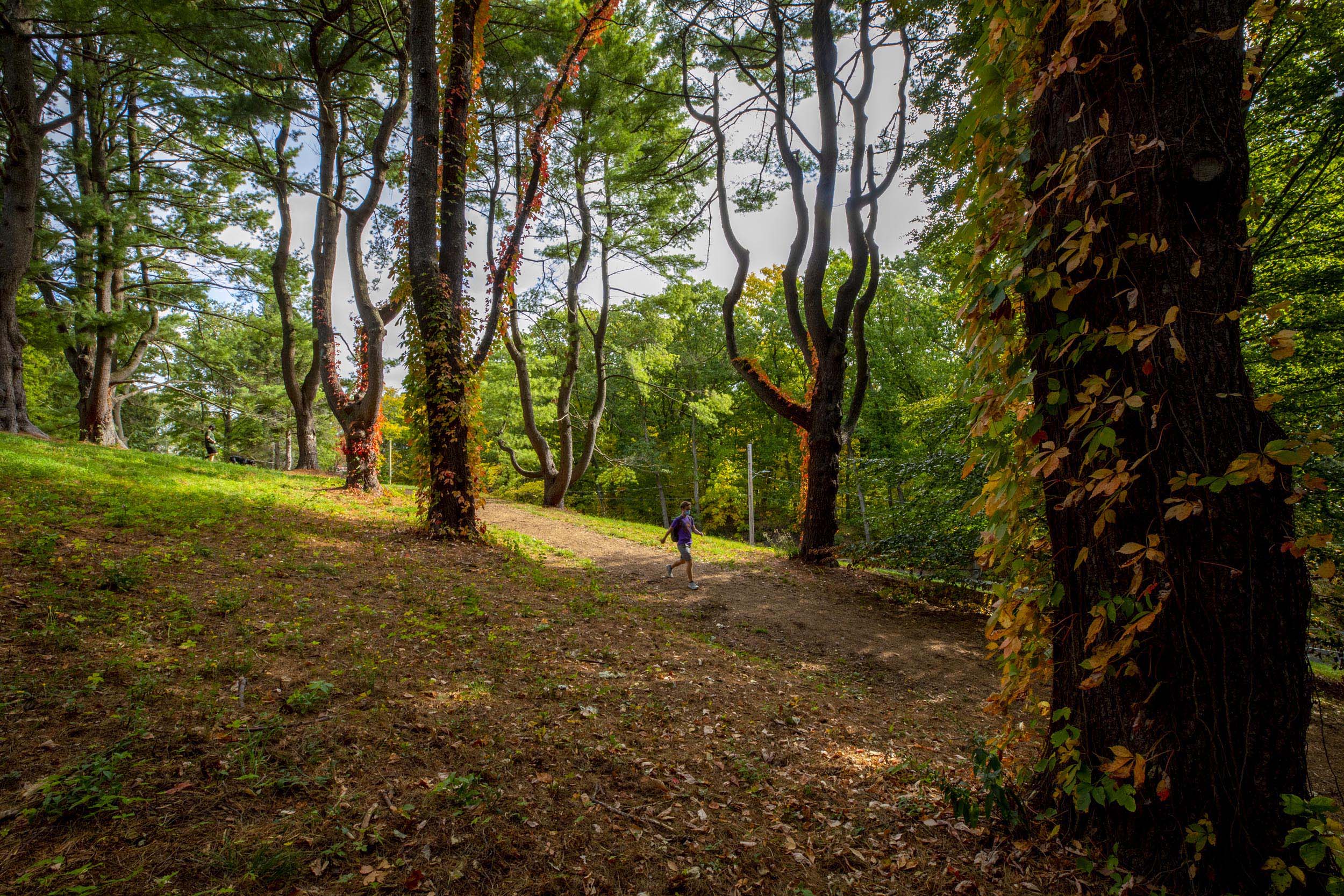
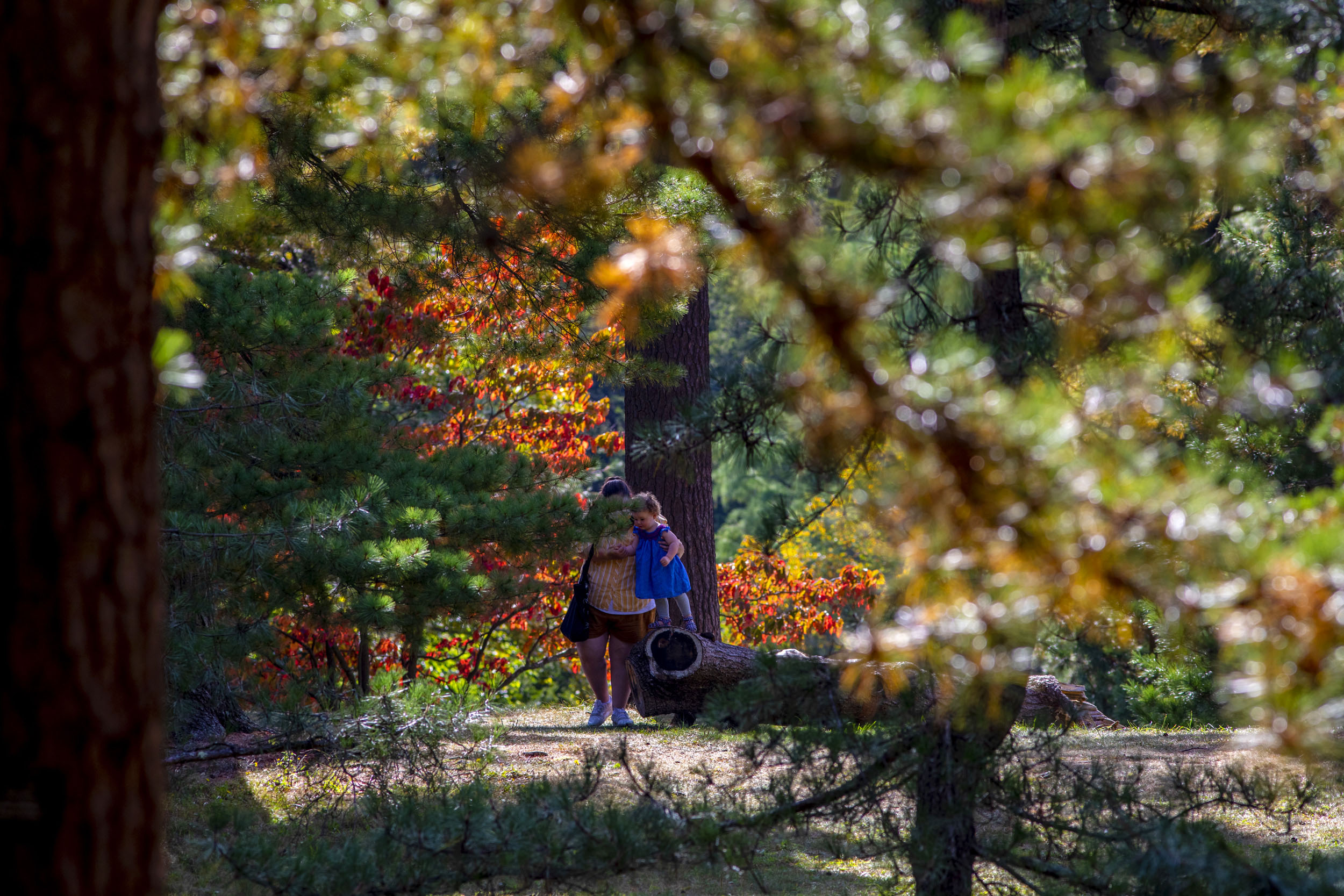
Rose Lincoln/Harvard Staff Photographer
While many outdoor spaces temporarily closed due to coronavirus, the Arnold Arboretum offered a safe respite to a record 2 million visitors weary of isolation and curious about the outdoor museum of trees.
The School of Education revamped its master of education degree, aimed to empower a new generation of educators to meet the emerging challenges of a complex, rapidly changing world.
The Weatherhead Center hosted the Global Food+ 2021 event, featuring 40 talks from experts on their research at the forefront of food, sustainability, agriculture, and health.
The School of Design launched “GSD Now,” a digital platform intended to provide the community with access to the full breadth of activity happening across the school at any given time.
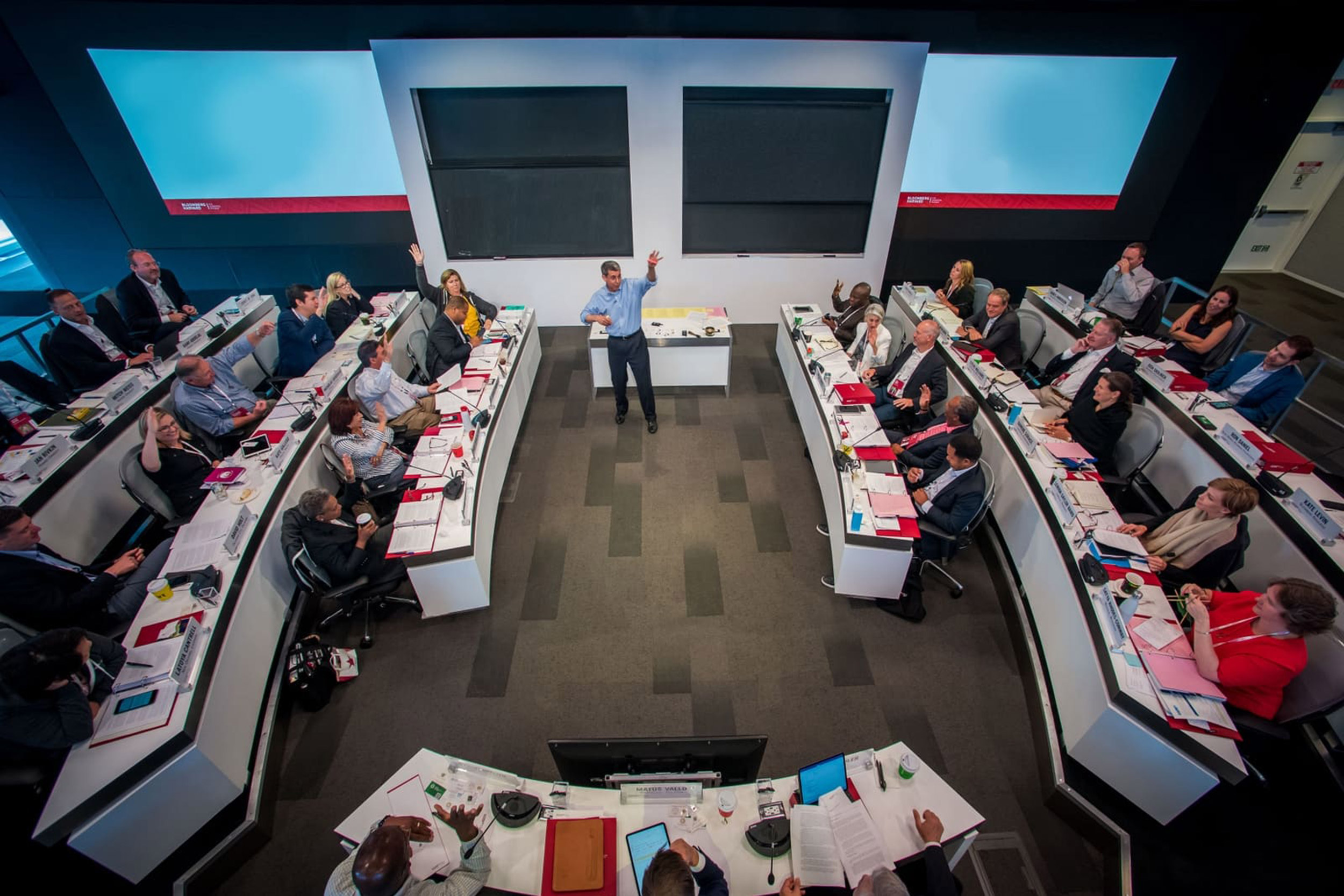
Credit: Bloomberg Philanthropies
Bloomberg Philanthropies and Harvard announced the creation of the new Bloomberg Center for Cities to support the country’s mayors, deepen a joint commitment to bold city leadership, and build on the Bloomberg Harvard City Leadership Initiative. Two mayors from that program shared how their experience at Harvard prepared them to face the toughest year of their careers.
March 2021
A team of nanobiotechnologists at the Wyss Institute and the Dana-Farber Cancer Institute have devised a programmable DNA self-assembly strategy that paves the way for ultrasensitive diagnostic tools.
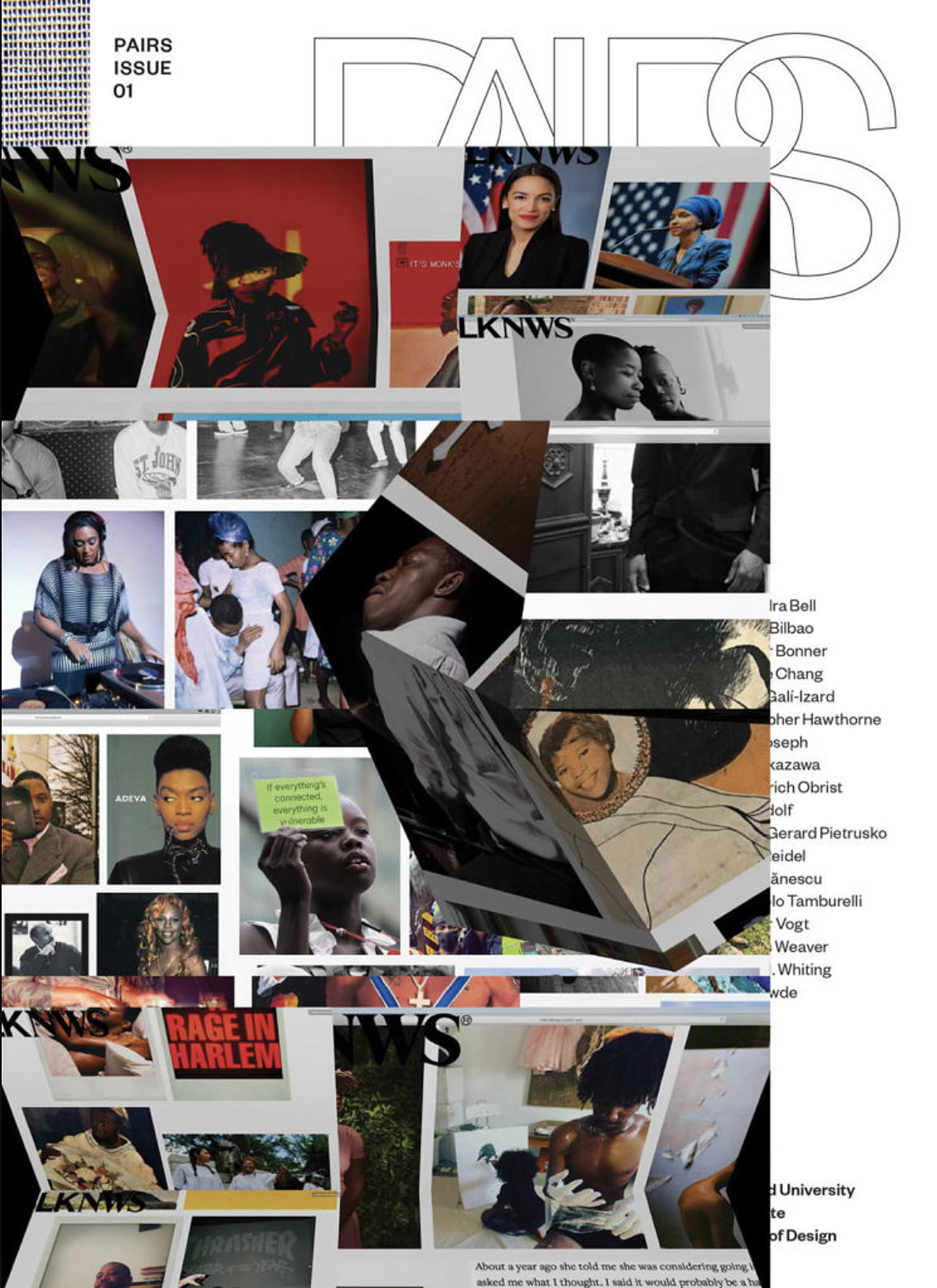
The School of Design revealed a new student-run journal, Pairs, dedicated to conversations about design that are down to earth and unguarded.
Harvard reflected on the legacy and influence of the Native American Program as it celebrated its 50th anniversary.
Spurred by the global disarray caused by the COVID-19 pandemic, the School of Public Health launched a program for business leaders to provide them with the foundational tools of public health.
Anurima Bhargava ’96, a civil rights lawyer who fights for the rights of underserved and marginalized communities was selected as the chief marshal for this year’s celebration of the Class of 2021.
Harvard’s new Science and Engineering Complex has been certified by two international building certification programs as one of the world’s healthiest most sustainable, and energy-efficient laboratories in the world.
April 2021
Joseph Allen, associate professor of exposure assessment science, and his team at the Healthy Buildings program, developed a new COVID-19 risk calculator to help people understand the ways that masking, ventilation, filtration, and other factors can mitigate the spread of COVID-19 in indoor environments.
Kevin Young ’92, celebrated author, poet, and director of the Smithsonian’s National Museum of African American History and Culture, was selected to speak at the 151st annual meeting of Alumni Association. The gathering is projected to be the largest virtual gathering of alumni.
Quantum at Harvard: ‘A game-changing’ moment
A conversation with SEAS Dean Frank Doyle, John A. and Elizabeth S. Armstrong Professor of Engineering and Applied Sciences, and Science Division Dean Christopher Stubbs, Samuel C. Moncher Professor of Physics and of Astronomy.
transcript
Transcript:
Doyle: We’re at a game changing point in science and technology. We’re poised to enable translation breakthroughs in our applications of that understanding to broadly stated information science, so networking, signal processing, encryption, communications, computing and simulation.
Stubbs: What we’re talking about, looking to the future, exploits the really spooky parts of quantum mechanics, about the relationship of information in spatially separated systems and trying to harness that technologically and bringing it to bear on problems in networking, computing, and sensing systems.
I think we’re learning more about the way the world works every day, and we’re interested here at Harvard in knitting that understanding together across different traditionally separated fields and pulling together an integrated effort that pulls together, computer science, electrical engineering, physics systems engineering, and tries to use these to build new tools to make life better for everybody.
Doyle: Chris, I completely agree, and I would say that one thing, I recognize deeply as the dean on the engineering side is that foundations are critical to achieving success in the domain of innovation or translation, whatever the application space might be. We have to have that core body of knowledge supporting and enabling really a continuum from basic science through applied science, ultimately to engineering. I would also point to the fact that we are modestly scaled compared to some of our peers, which I think empowers us with agility and nimbleness that allows us to quickly assemble the teams that cross the spectrum of these disciplines that we need to harness, and that’s a real strength here at Harvard as well.
Stubbs: I would say we’re making significant institutional investments in this enterprise. We’ve identified a building, working in partnership across the university, that’s going to be put to use for this activity, with new labs, new teaching labs. We will fill that space with colleagues that we intend to bring to campus to strengthen our faculty in this domain. We’re building a strong and vibrant educational program. And I think an important element to include here is that we see this as a way to reach all the way into applications at scale, and we’re building partnerships with industrial partners, ranging from startups-sized companies to major national corporations that are going to have the ability to bring these ideas to bear at scale and impact people’s lives in a positive way.
Doyle: I would say that this opportunity has tremendous potential across a wide array of fields and applications, from more traditional engineering fields like communications, cybersecurity, network science, but across an even broader array of fields including finance (thinking about the new kinds of algorithms that are going to power the future of things like trading and stress testing the market); precision medicine; the quantum principles that we’re going to be able to leverage in devices that will now interrogate at unprecedented scale — spatial and temporal — to bring information back that we can act upon. So it’s virtually a limitless horizon of application opportunities out there.
Stubbs: We’re fortunate in the Boston area to have another university down the road, whose initials are MIT, with which, in particular in this technical domain, we have strong existing partnerships among the faculty. We view this as moving forward arm-in-arm with sister institutions in this region to establish Boston as one of the premier centers in the nation for both innovation, education, and application of this new technology.
Doyle: Our faculties partnering across Harvard and MIT have been doing this for literally decades. So there’s an incredible organic foundation that has been laid in the Greater Cambridge, Greater Boston space that we’re now turning an inflection point to accelerate that activity.
The field of quantum really opens up some exciting partnership opportunities, which we’re exploring with great passion. The notion that the continuum from the university and basic research and applied research, through to getting products in the market, through getting operational networks, operational systems is one that truly is a continuum. So there has to be integrated partnerships, where we invite partners in the private sector in to be embedded on the campus to learn from the researchers in our labs, where we embed our faculty out in the private sector in national labs to learn about the cutting edge applications that need to drive and fuel the research taking place back on the campus. So I really view this as a wonderful new opportunity to rethink the nature of how the private sector and the academy partner to enable the ultimate translation into products, technologies that are going to benefit mankind.
Edited for length.
The launch of a pioneering Ph.D. program in quantum science and engineering is the latest step in the University’s commitment to move forward as both a leader in research and an innovator in teaching in the field. The University also announced plans for the creation of a quantum hub on campus, supported by generous donors, including Stacey L. and David E. Goel ’93.
Jerome Offord Jr. joined Harvard Library as the first Associate University Librarian for Antiracism. He will lead the development of strategies for systemic change through the library workforce, services, collections, and spaces.
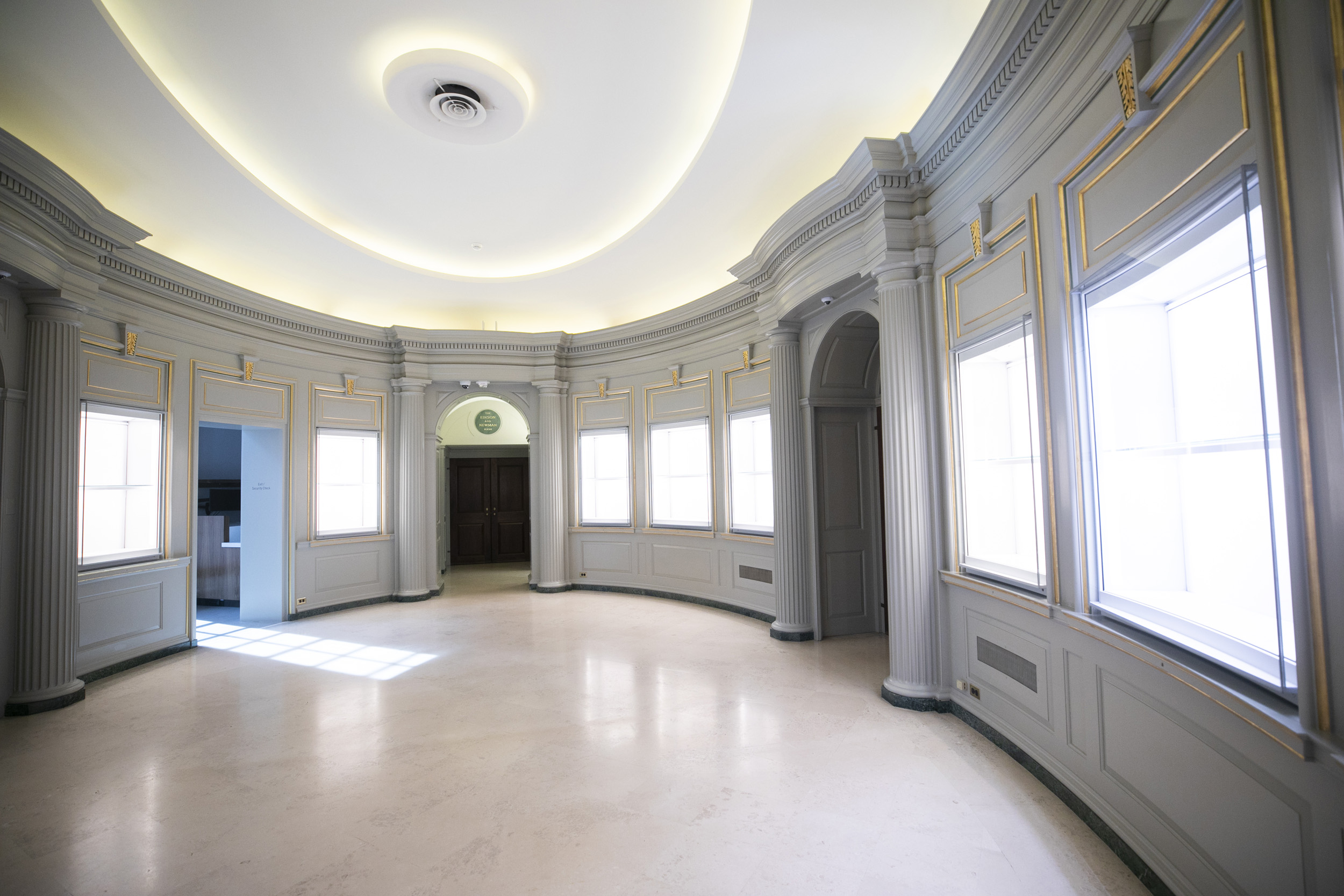
Stephanie Mitchell/Harvard Staff Photographer
The Houghton Library welcomed its first visitors after a 16-month renovation project, made possible through support from donors, including philanthropist Peter J. Solomon ’60, M.B.A. ’63, and his wife, Susan Solomon. The Solomons’ donation of children’s literature and illustrations in 2018 were part of a gift to create a new Harvard Gate near the library, whose design drew inspiration from “Alice’s Adventures in Wonderland.”
Harvard College offered admission to 1,223 applicants for the Class of 2025 through its regular-action program, with 1,968 admitted in total, including those selected in the early action process. The total number of applications for the Class of 2025 was 57,435, a marked increase from 40,248 for the Class of 2024.
May 2021
Students from Harvard and more than 20 other universities started a fundraising effort to help India fight the COVID-19 surge.
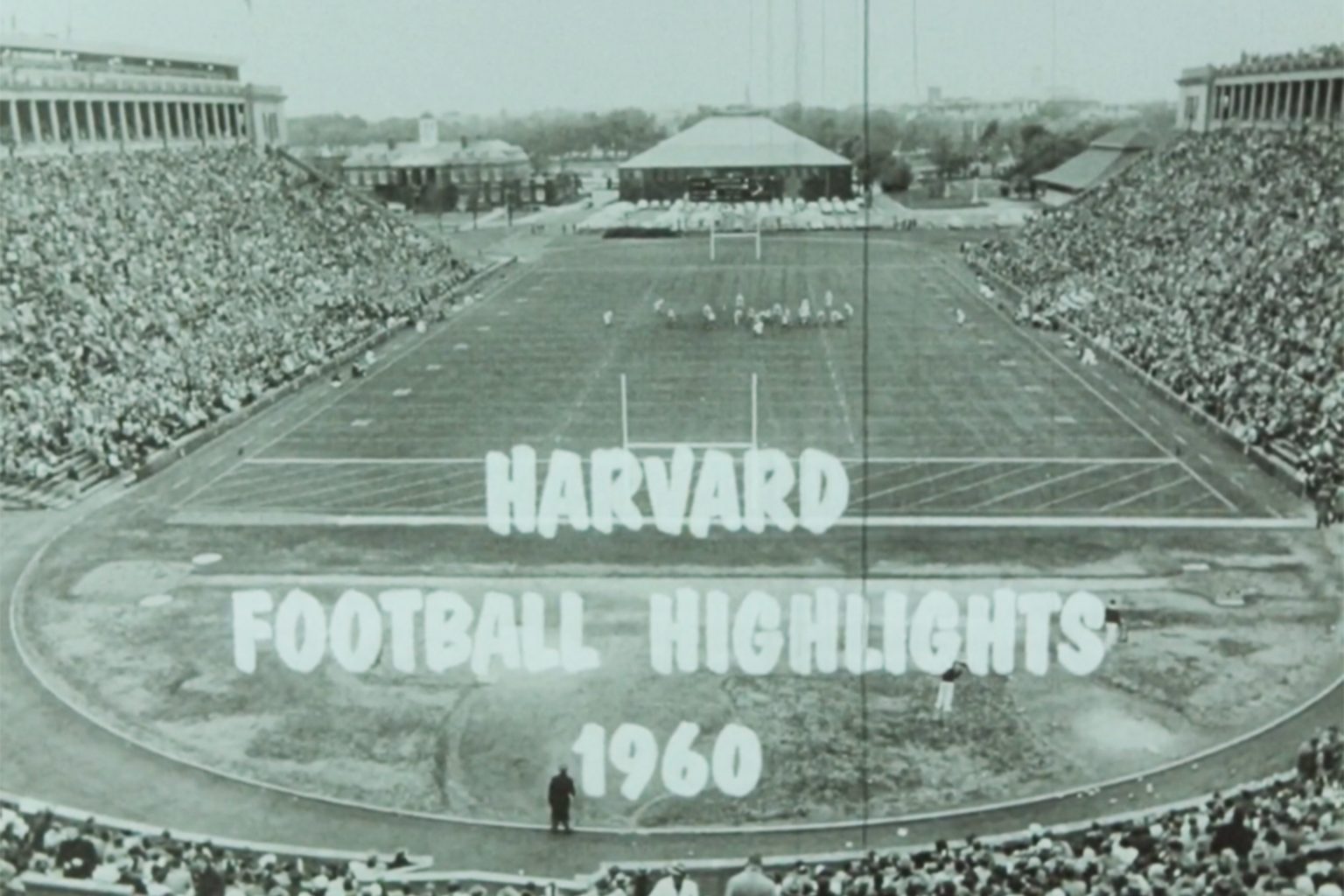
Credit: Video Vault
Harvard Athletics launched a Video Vault to allow fans to relive historic moments on demand.
Professor of religious studies and literature, Episcopal priest, and active member of the Harvard community Matthew Potts was named the new Pusey Minister at Memorial Church.
Starting in the fall, Harvard sophomores can join the Intergenerational Humanities Project and the Undergraduate Scholars Initiative for an intense focus on the humanities.
As HAA president, Liu said she plans to “take action to help one another create change in their communities and in the world,” and “bridge divides, especially on a global level.”
Photo by Kevin Abosch
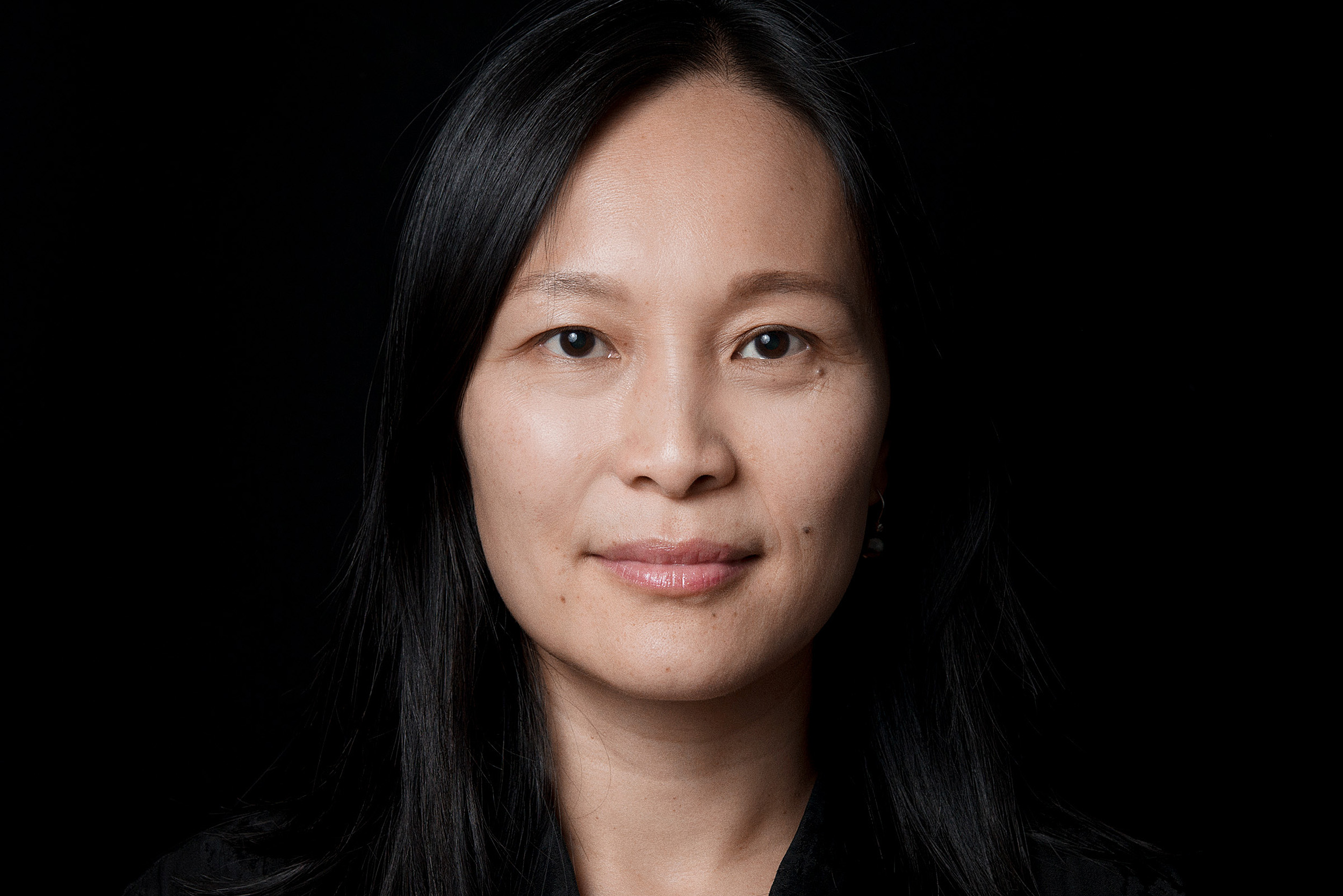
The Harvard Alumni Association introduced its new president, Vanessa Liu ’96, J.D. ’03, who aims to find ways to help alumni “come together as One Harvard.”
Harvard researchers designed a stable, lithium-metal, solid-state battery that is far more efficient than lithium-ion batteries.
Harvard University celebrates the Class of 2021 with a virtual ceremony, featuring principal speaker Ruth J. Simmons.




